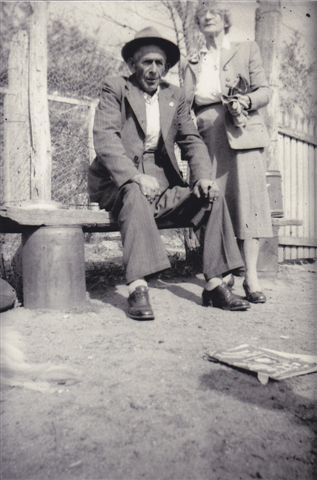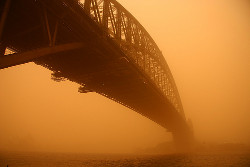James Longmore – World War 1 Soldier Settler
Dad was born at Gosford NSW on the 9th of January 1889 and married Rose (Rosa) Alder on 30 April 1923 at Hill End (central NSW). He died at Tamworth on 21 August 1954 and my mother died on 7 May 1983 at Parramatta.
Dad was a blacksmith before he decided to be an early enlistee into the Army on 20 August 1914 (I.D. Nr. 11). He served in the Engineers, first at Gallipoli and then on the Western Front, for the duration of WW1. He was initially discharged on 12 December 1918 but re-enlisted on 30 September 1919 for Special Service, probably for employment reasons, escorting Germans who had been interned in Australian prisoner-of-war camps, back to Germany. He was discharged for the second time on the 26 March 1920.
The soldier settlement land allocated to him at Limbri was a reasonable sheep farming property but Dad was not a farmer, he was a blacksmith. Perhaps if the government had helped him set up a blacksmithing business instead of trying to make a farmer out of him the outcome would have been different but I guess the government of the day was not into flexibility. So, the soldier settlement scheme was no great reward for this soldier who had landed at Gallipoli on the first day of that action and then later spent over three years on the battle fields of France and Belgium. To be evicted from their farm during the 1930 depression years for non-payment of debt would have been the final ignominy from a country which must have seemed to dad and mum to have turned its back on its ex active-service soldiers. Many of them (dad included), had unrecognised and untreated deep psychological, and physical health problems caused by their service in that horrendous war. The pressure and heart-break on their families was immense.
After the family was forced to leave their little slab home on the Limbri property in 1934 they moved first to a decrepit farm house near Moonbi which mum somehow rented. Not long afterwards however they moved to a small 60 acre property at Kootingal (both of these places are small villages near Tamworth) but the Kootingal move was obviously not a good one and they later moved to Bendemeer , another village 40 kms north-east of Tamworth where they rented a small old farmhouse before buying an inadequate small farm across the road from the rented place. Two more boys were born at Bendemeer (I was one of them) making a total of six children; 5 boys and one girl – (Malcolm, Stanleigh, Barrie, Phyllis, Laurie & Trevor).
Despite his experiences in WW1, dad enlisted for the Second World War but due to his age, was not called on to perform active service overseas. He was posted to several different army establishments in NSW between 1939 and 1945. Malcolm and Stan also enlisted and served in the RAAF.
The Bendemeer farm was not large enough to provide a living and after WW2, dad worked in a gold mine at Hill End for awhile and later for the Cockburn Shire Council on road maintenance. He sometimes went rabbiting in the harsh, frosty New -England winters as selling rabbit skins provided more money than did the council wages. An old horse (Peter) was his only means of transport. He loaded him down with traps and an old canvas tent and that was his lonely, cold home for each week he was away. He came home to the farm at weekends to sell the skins and also did a bit of black-smithing and farrier work at weekends too. Mum raised poultry and turkeys to provide additional irregular income. It was a tough life with little money to raise a family and I don’t think I ever saw them show any real happiness or enjoyment of life. That’s a sad reflection for me.
Eventually, the exposure to gassings during WW1 and his long term smoking took its toll and dad died in 1954 from lung ailments aged 66. Mum sold the farm then and moved to Tamworth for awhile before moving to suburban Sydney where she died in 1983 aged 91.

